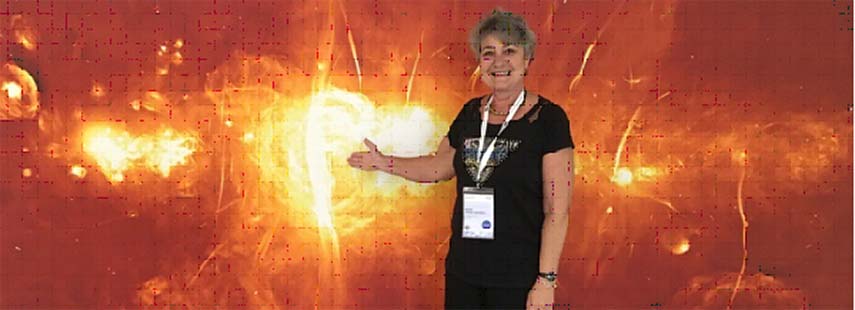Professor Renee Kraan-Korteweg flew the flag for the University of Cape Town (UCT) when she won the Minister’s Special Award at the South African Women in Science Awards (SAWISA) 2018.
Each year the national Department of Science and Technology honours women who make a significant contribution to science and research.
The Minister’s Special Award in the field of astronomy, the Commemorative MeerKAT Award, recognised the UCT professor’s “outstanding contribution to building South Africa’s scientific and research knowledge base in advancing the field of astronomy”.
She was also lauded for her success in respect of training the next generation of radio astronomers, and for helping to elevate radio astronomy as a strategic research field.
Prof Kraan-Korteweg, who is also the chair of the South African Astronomy Advisory Council and vice-president of the International Astronomical Union, made international news in 2016 when she was one of only two South Africans on an international team of astronomers who managed to explore behind thick clouds of dust particles in the Milky Way. These had previously made it impossible to map large parts of the sky.
That team announced a ground-breaking discovery of 883 new galaxies following nearly two decades of painstaking research.
Later the same year, Professor Kraan-Korteweg led the team that announced their discovery of another massive supercluster of galaxies, also previously obscured behind dust and stars around the plane of the Milky Way.
At the time Professor Kraan-Korteweg likened astronomers to “explorers of the universe”, saying that work was like “in the past, when they started making maps of the Earth”.
“We are making maps of the sky,” she says.
UCT’s astronomy department is the only dedicated, independent university department focused on astronomy in South Africa, with strong ties and joint positions with the South African Astronomical Observatory and significant interaction with the Square Kilometre Array (SKA) SA project office. Until the SKA is completed, the 10-year MeerKAT project offers one of the largest radio telescopes in the world for research.

